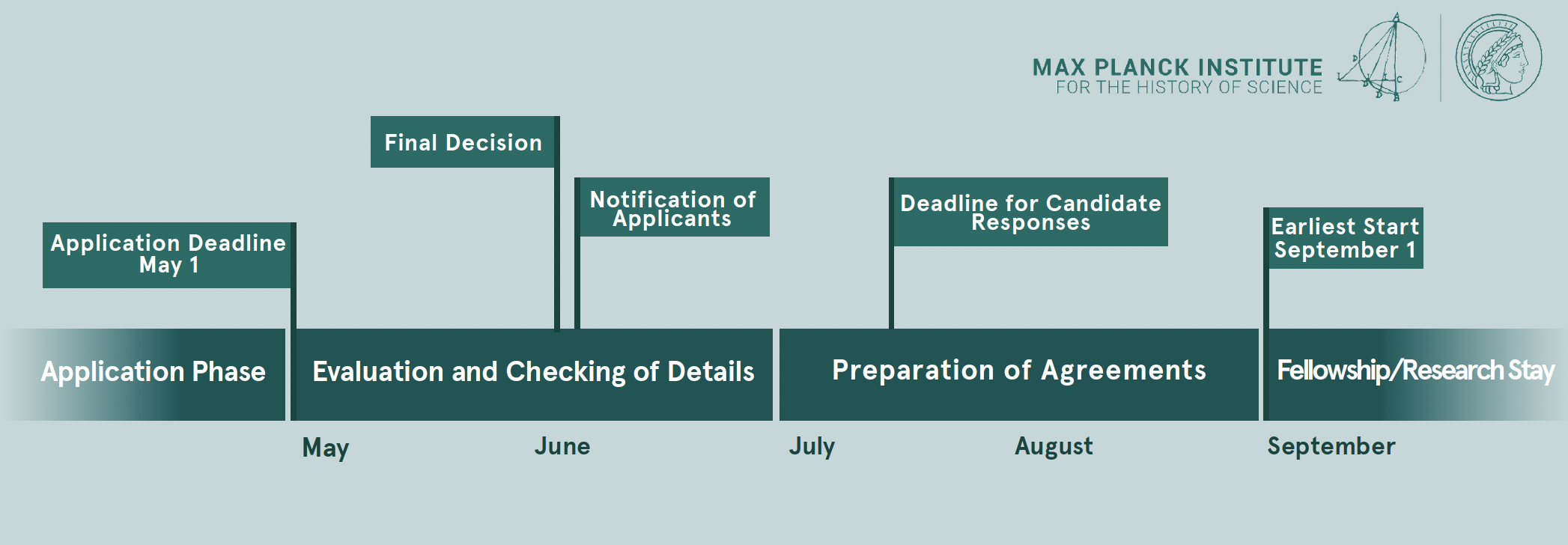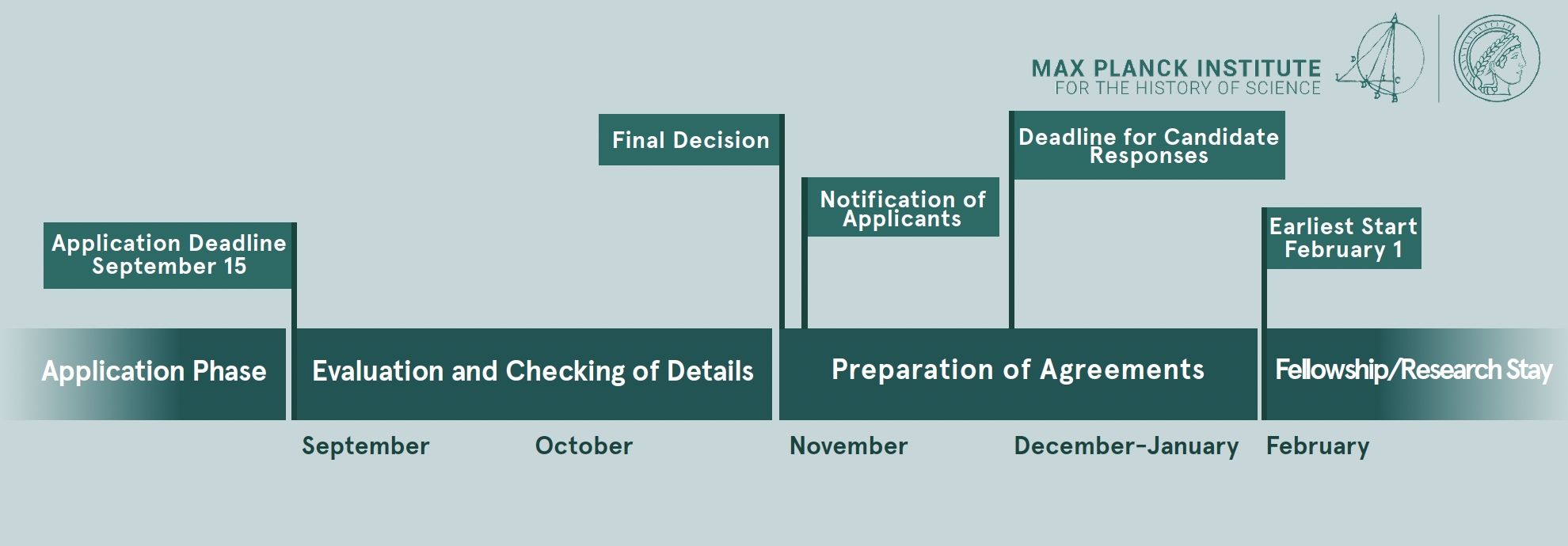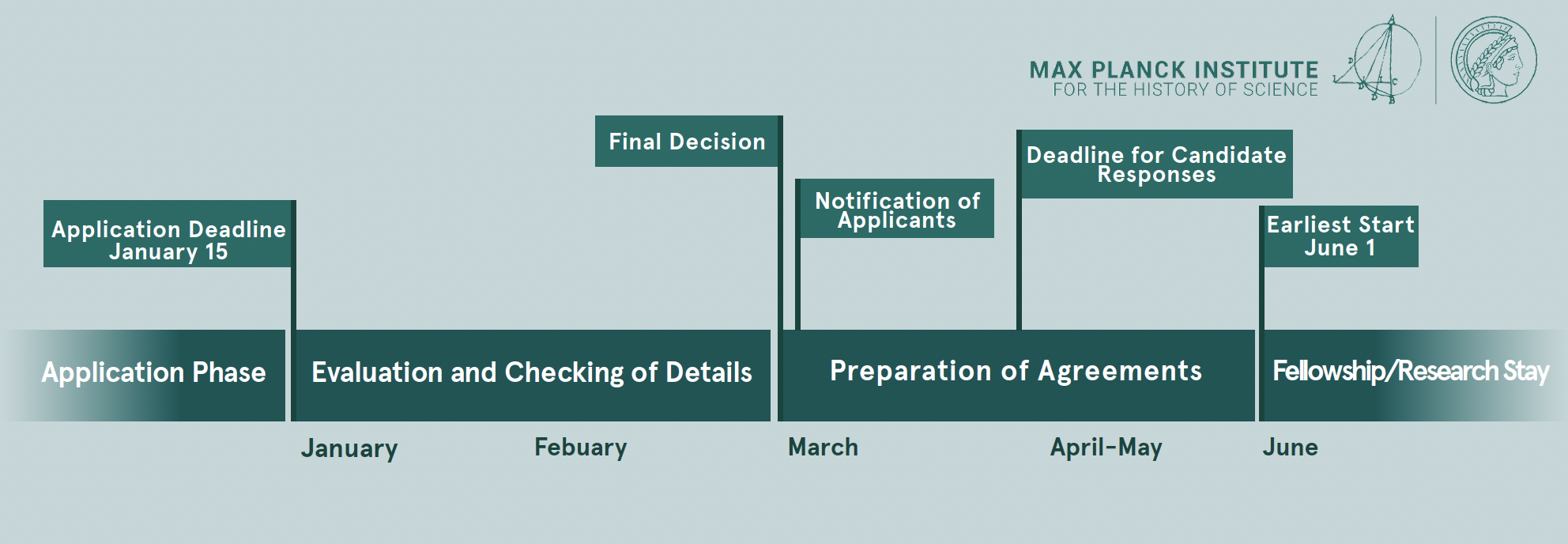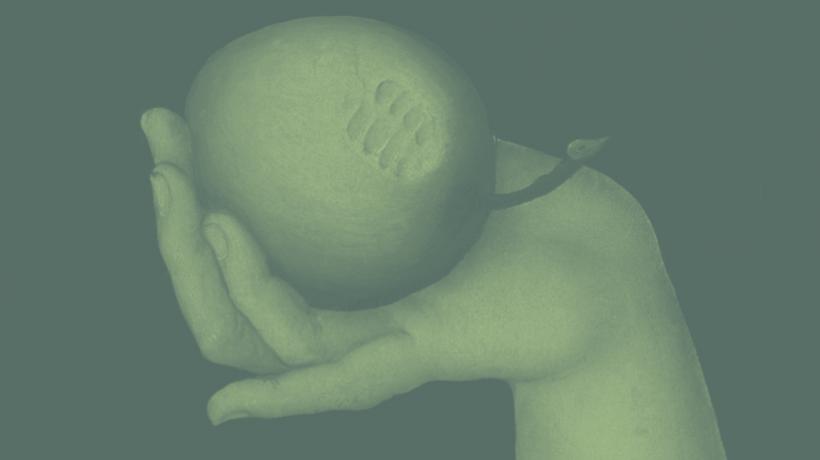Next application deadlines: May 1 and September 15, 2025 (23:59 CE(S)T); January 15 and September 15, 2026
Prepare your Application
Before reading on, please check whether you are actually applying for the general fellowship program/ a research stay or for an advertised position with an employment contract. For the latter, please refer to the specific job advertisement.
Please have ready the following documentation (as PDF files) and information, depending on the type of funding for which you wish to apply:
(1) Postdoctoral Fellowship/Research Fellowship** or Senior Researcher Fellowship (with stipend)
- formal letter of application, stating dates of your desired stay (please pay attention to the minimum and maximum length of a stay stated on our website) and sources of external funding (if any);*
- a curriculum vitae, including publication list;
- a brief research proposal (maximum 750 words) in which the fit of your proposed research to the department’s/research group’s research themes is made clear.
- if possible, the doctoral certificate (this document is required in any case in the event of a successful application and may be requested subsequently)
(2) Predoctoral Fellowship (with stipend)**
- formal letter of application, stating dates of your desired stay (please pay attention to the minimum and maximum length of a stay stated on our website) and sources of external funding (if any);*
- a curriculum vitae, including publication list;
- a brief research proposal (maximum 750 words) in which the fit of your proposed research to the department’s/research group’s research themes is made clear;
- if possible, the master's certificate (this document is required in any case in the event of a successful application and may be requested subsequently);
- a letter of reference from your dissertation advisor.
(3) Research Stay (Visiting Predoctoral/ Postdoctoral/ Senior Research Fellow)
- formal letter of application, stating dates of your desired stay and sources of external funding;*
- a curriculum vitae, including publication list;
- a brief research proposal (maximum 750 words) in which the fit of your proposed research to the department’s/research group’s research themes is made clear.
*Please make sure to explicitly mention which thematic domain within the department/research group you would like to work with and why you think your project fits exactly into the departments/research group’s research agenda.
**This also applies for candidates within the fellowship program with Sydney University (spring 2025).
Application Process
Please first select the department/research group to which you wish to apply:
- Dept 2 "Knowledge Systems and Collective Life" (here)
- Dept 3, "Artifacts, Action, Knowledge" (here)
- Max Planck Research Group "Astral Sciences in Trans-Regional Asia" (here)
- Lise Meitner Research Group "China in the Global System of Science" (here)
Applicants for the special Fellowship Program "African History of Knowledge" (Dept 2 "Knowledge Systems and Collective Life"): Please apply here. You will find more information about this program on our page with current job opportunities and special fellowships.
Applicants within the special fellowship program with Sydney University (spring 2025): Please follow your university's internal application process and then apply here. You will be able to choose your preferred department or research group (first and second choice) during the process.
It is not possible to apply to Department 1 (former head: Jürgen Renn) or the Research Groups of Lara Keuck and Alexander Blum since these groups came to an end in 2024. It is also no longer possible to apply to the Research Group of Katja Krause.




